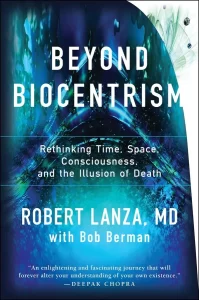Four chapters remain. We are a little over $1,200 from our final reward of the fundraiser ,an article on the Middle Ages Academic crisis (overproduction and collapse.) Chapters to come include:
8. Interaction ritual (how daily life creates identification and personality)
9.The Ritual Masters (How rituals create different types and classes of people)
10. The Ideologues (How identity is tied into story, ideology and meaning)
11. Reign of the Ideologues (How ideology is used to create civilizations and the payoffs for ideologues)
Chapter 7: The Ritual
Humanity’s first invention was either simple stone tools or rituals.
My money is on rituals.
Moderns tend to think of rituals entirely as formal affairs, like a Catholic Mass or a flag raising.
Those are rituals, but rituals are far more than that.
A ritual is focus on a specific object or activity and the deliberate creation of a mood through repeatable stylized methods.
Rituals are strongest when done by a group with shared focus.
Rituals require substantially the same behaviour each time.
Sample Ritual
Sit comfortably or lie down.
Imagine a raindrop, suspended in midair before you, or place a picture of a raindrop in front of you at eye level. This represent Indra, he who brings peace.
Say, “Indra grant me peace.”
Tense your face muscles as hard as you can, then while imagining the raindrop, relax your face entirely and say “Indra, grant me peace.”. Do the same thing for your torso, each arm individually, your groin and thighs, and each leg. Then tense your entire body, while envisaging the raindrop, and relax.
Now stay where you are for five to ten minutes, gently returning your mind to the image of the raindrop whenever it moves away.
Stand, raise your arms wide and above your head, close your eyes, and say “I thank Indra for his peace.”
Lower your arms, and smile. The ritual is done. Don’t you feel better?
Congratulations, you have now performed a ritual. Do this every day for a month, ideally twice a day: once when you wake up, once before going to bed. After a month of doing this, whenever you feel stressed, say “Indra grant me peace” or imagine a raindrop (or look at a picture of a raindrop.) You will feel relaxed. You’ll probably also find a newfound appreciation of rain storms!
What you have done is tie a specific feeling in your body, relaxation, to symbols: the raindrop, and the words “Indra grant me peace”.
No matter where you are, this conditioning will go with you. You likely feel some gratitude to Indra for granting you peace, even if you believe this is irrational.
Human emotions are stronger if there is emotional entrainment. If I feel joy, or anger, or relaxation and someone in my immediate vicinity also feels that emotion, we will make each other’s emotion stronger. If we move together, the emotion will be even stronger. This is as simple as smiling or frowning, both of which are contagious, but much more complicated sequences of emotions can be involved.
Imagine a ritual much like the one above involving gentle swaying movements and chanting Indra’s name over and over again. Do it with another person. As you move together, you both become more relaxed and you have a new way of making the feeling portable: whenever you want to feel relaxed peace, even if alone, you can sway in place and chant Indra’s name.
Truly Indra is great, wherever I am, if I imagine his holy rain drop, speak his name or dance his sacred dance, he brings me peace.
Anyone you do these rituals with you will feel close to. Do you not both know Indra’s peace? Where you see someone wearing the raindrop symbol, you will feel kinship: this is a fellow knower of Indra’s peace.
Often rituals are done first by a group, even if that group is only two people – a teacher and an initiate. A strong track is laid down, then the initiate practices alone, hopefully returning to the group to lay down more tracks made strong by the entrainment and emotional contagion of the group.
Watch a video of the Nuremburg rally (really, watch), one of the most powerful rituals in recent memory. There are shared symbols (the swastika, Hitler himself). People move together. They make the Nazi salute, a salute specific to Nazis. They all concentrate on Hitler together and they are exalted together.
Later when they think of the Swastika, of Hitler or when they make the Nazi salute there will be an echo of what they felt during that ritual.
Those who performed the ritual together are Nazis like them, to be trusted and worked with, brothers and sisters. And since Hitler, it seems, made them feel that way and still makes them feel that way, well he is a great leader to be followed, for he has made them more than they were.
Do not sneer, this worked and it worked well. If you think it wouldn’t have worked on you, you are missing the point. It might not have, but you would be claiming to be a rare individual, because it worked on most.
A ritual that fails can do the opposite: it can attach negative emotions to the ritual objects. Hours of watching those fools and toadies salute “the Leader” and listening to Hitler rant and you aren’t going to be all sanguine about Hitler, the Swastika and the Nazi salute.
That’s important, because it will mark you as an outsider. Your dislike would be emotional and strong and when forced to say “Heil Hitler” and salute the Swastika, you would be unhappy.
That you were not a Nazi could well be seen by someone watching you not react properly to the symbols. You are not of the Volk, you cannot be trusted.
Not all rituals are large affairs. A romantic date is a good date if you and the person you are with emotionally and physically entrain. Analysis of dates which are going well shows that people start mirroring each other’s actions. Both lean forward together, they start breathing together and so on.
Later they may have their special place: the restaurant or park or museum where they first felt so close to each other. They may have “their song”, the song which was playing at the peak of this ritual. As the relationship intensifies they may wish to make it formal and eternal and one may give the other a ring.
This is what they wanted, the ring symbolizes that commitment and relationship. The peak feeling of the proposal and the acceptance is associated with the ring, and later when either wants to remember what is so great about the other person or the relationship they may touch or look at the ring they carry with them all the time.
Rituals.
Rituals are methods of conditioning. There are big rituals and small rituals. Saying hello and goodbye is a ritual, if you don’t believe that, don’t say goodbye to a close friend after talking to them, just turn around and walk away, and see how that feels to both of you. Goodbye and hello are gestures of respect to the relationship. (X – Goffman). Old fashioned bowing, kneeling and full prostrations were rituals too. Calling someone Sir or Madam who doesn’t call you that back is a submission ritual, and so is calling a teacher or boss by their family name while they call you by your personal name.
Rituals are at the heart of ideology and identity. They are one of the main means of creating both. They are almost always attached to stories, implicit or explicit, and the stories matter. Take the Australian indigenous tribe Aranda, and their identity rituals, as described by Anthropologists Flannery and Marcus (x).
Anyone who has ever tried to deliver a long, complicated lecture to young people knows that they do not always pay attention. Let them watch music videos over and over, however, and they commit every lyric to memory. Combined art, music and dance, throw in an intoxicating beverage, and they can not get enough of the awesome experience.
The Aranda held a secret ritual known as churunga ilpintia, which integrated art, music and dance. It was performed at a secret venue in the desert and began with a group of men smoothing an area of bare ground. One or or more would provide blood, often as much as a pint, from veins in their arms. This sacred blood was used both to dampen the ground and to serve as a medium for the paint. Impersonating legendary ancestors, the men serving as artists painted their bodies red, white, yellow and black, adding downy bird feathers glued on with blood. Using a chewed twig as a brush, they slowly pained the earth with white paipe clay, red and yellow ocher, and charcoal. As paintings took shape the elders sang ballads recounting the mythical exploits of the ancestors; less experienced men watched and learned.
That’s a ritual. It would also have been a peak experience for the Aranda men, something very different from their ordinary lives, something they would remember.
Note that what makes an Aranda an Aranda is a specific set of ancestors. There is a story of where the Aranda came from. You are who you are because of your ancestors, and their deeds. You also have Gods.
People who do not have the same ancestors are not of the people. Those who do not have the same Gods are even more alien.
This story creates an identity which is hard to share. It’s not that you necessarily have to be born to the people, though I don’t know whether Aranda allowed adoption, many Native American tribes did and so did Chinese ancestor worshipers and ancient Romans, but you do have to be initiated. You do have to be part of the story, have taken part in the rituals, have adopted the identity. You must belong to the cult: to the religion.
This very particular identity creates the background for much of history. Those who were not “one of us”, “of the people” were fair game for violence throughout the world. They could not be trusted. You see this in the early Chinese, the Greeks of Homer’s time and in classical times. You see it in Rome, and in Mesopotamia and so on.
Efforts to expand identity, to expand the number of people who can trust and who aren’t viewed as legitimate targets for violence, are much of the story of history and, one expects, of pre-history.
Take for example pantheons, groups of different Gods. How are they created? One way is that groups who wish to ally bring their Gods together. Another way is that when a group is defeated, their God is adopted into the pantheon of the conqueror. The Romans, when attacking a city, would invite the city’s God to join their pantheon.
If a new community was created, a new god would often be created for that community. Serapis, the God of Alexandria, was created for that city at Alexander’s command, he had not existed before then.
The history of Gods and religions, too, can be read almost entirely politically. Christianity’s adoption by the Roman Empire, its conversion of pagans by offering Kings legitimacy, literate clerics and trade, or Confucianism’s deliberate focus on providing Princes with officials and legitimacy are both cases in point. The rising and falling fortune of Egyptian Gods as dynasties rose and fell, was also about politics. Or perhaps, about faith as much as politics?
This is slightly too cynical, but only slightly. Those who desired to create kingdoms and cities and states whose people would work together needed identities and stories which made that possible. Those identities had to be emotional, they had to be felt, and religion and its rituals offered the obvious way to do that.
They also needed shared norms and morals, a shared idea of what was right and wrong, for without it conflict would be constant.
Ideology and identity were both thus served.
Modern ideologies such as communism, nationalism, democracy, human rights and capitalism, while divorced from Gods, are still descendants of this process and still serve the same purpose. They are successful to the extent that they create identity groups and that they put forth a clear ethical statement of how the world should be which is accepted by those who believe the ideology. Where and when they cannot do one or the other, they fail. When they do both, they can and often do change the world.
Rituals are thus key to understanding human history, society and how we create our worlds.
SUBSCRIBE OR DONATE

 Quantum mechanics is seriously weird. The majority of us have a model of the world based primarily on Newtonian physics. We believe in cause and effect. The universe is a giant machine following laws, and if there wasn’t a single conscious being in it, those laws would still be the same.
Quantum mechanics is seriously weird. The majority of us have a model of the world based primarily on Newtonian physics. We believe in cause and effect. The universe is a giant machine following laws, and if there wasn’t a single conscious being in it, those laws would still be the same.
